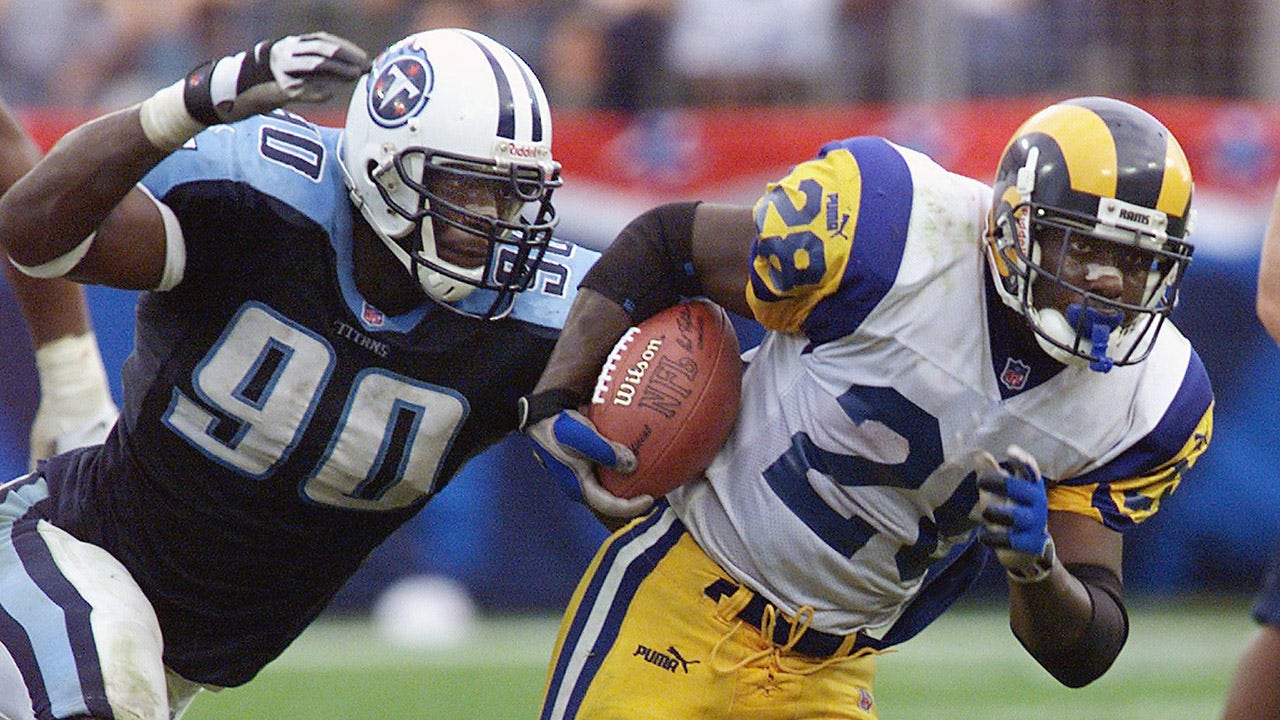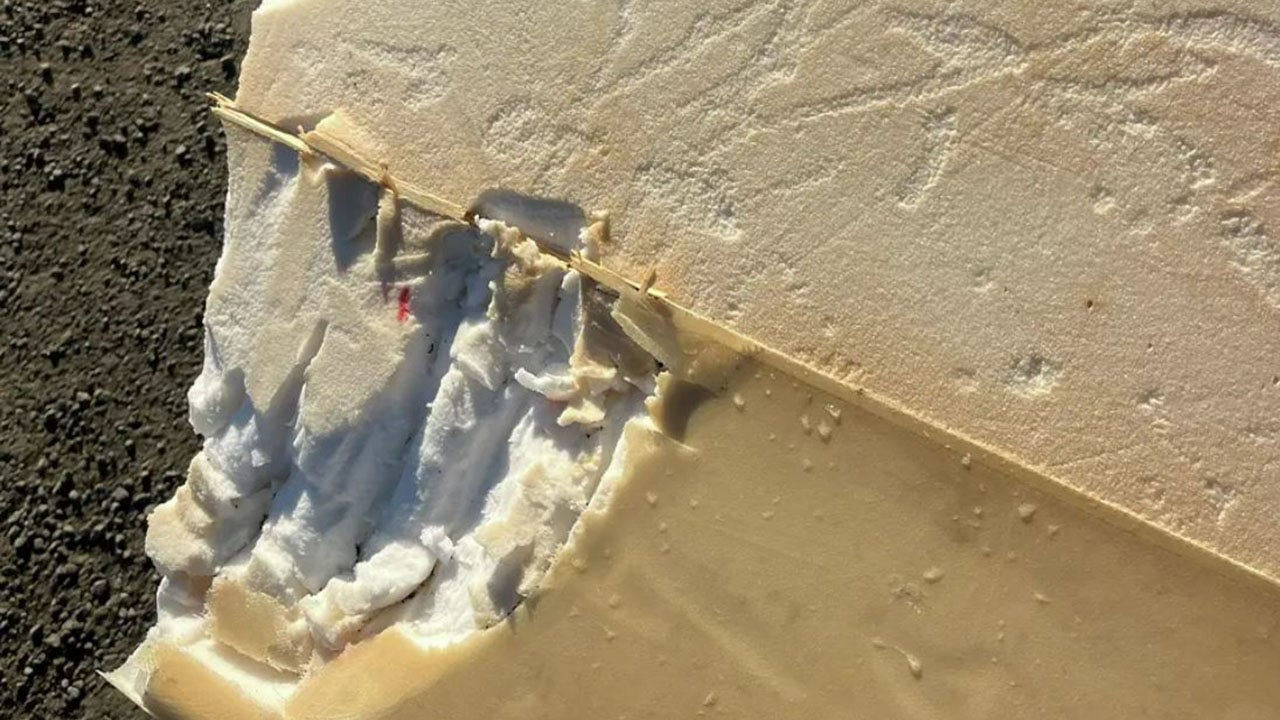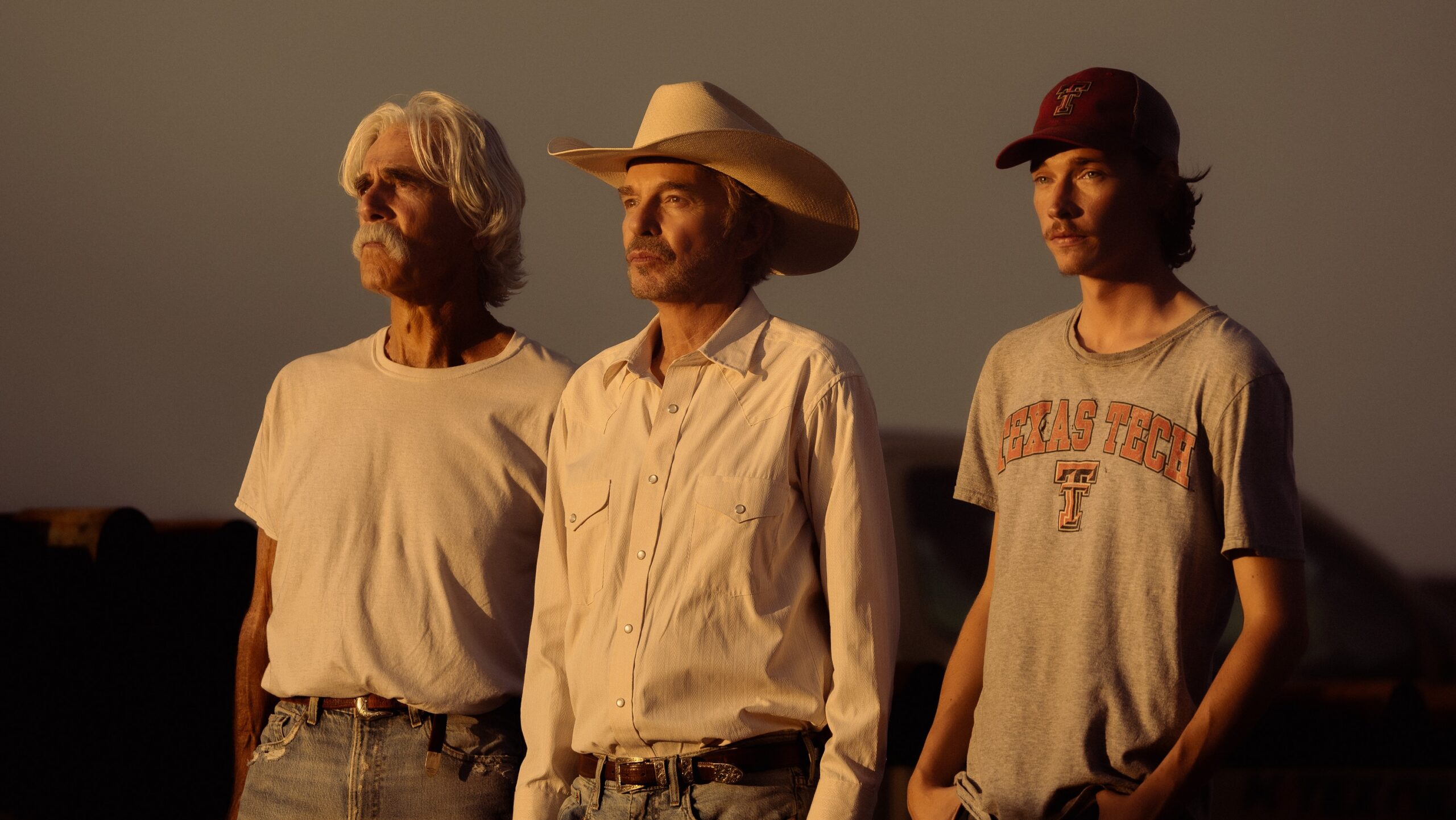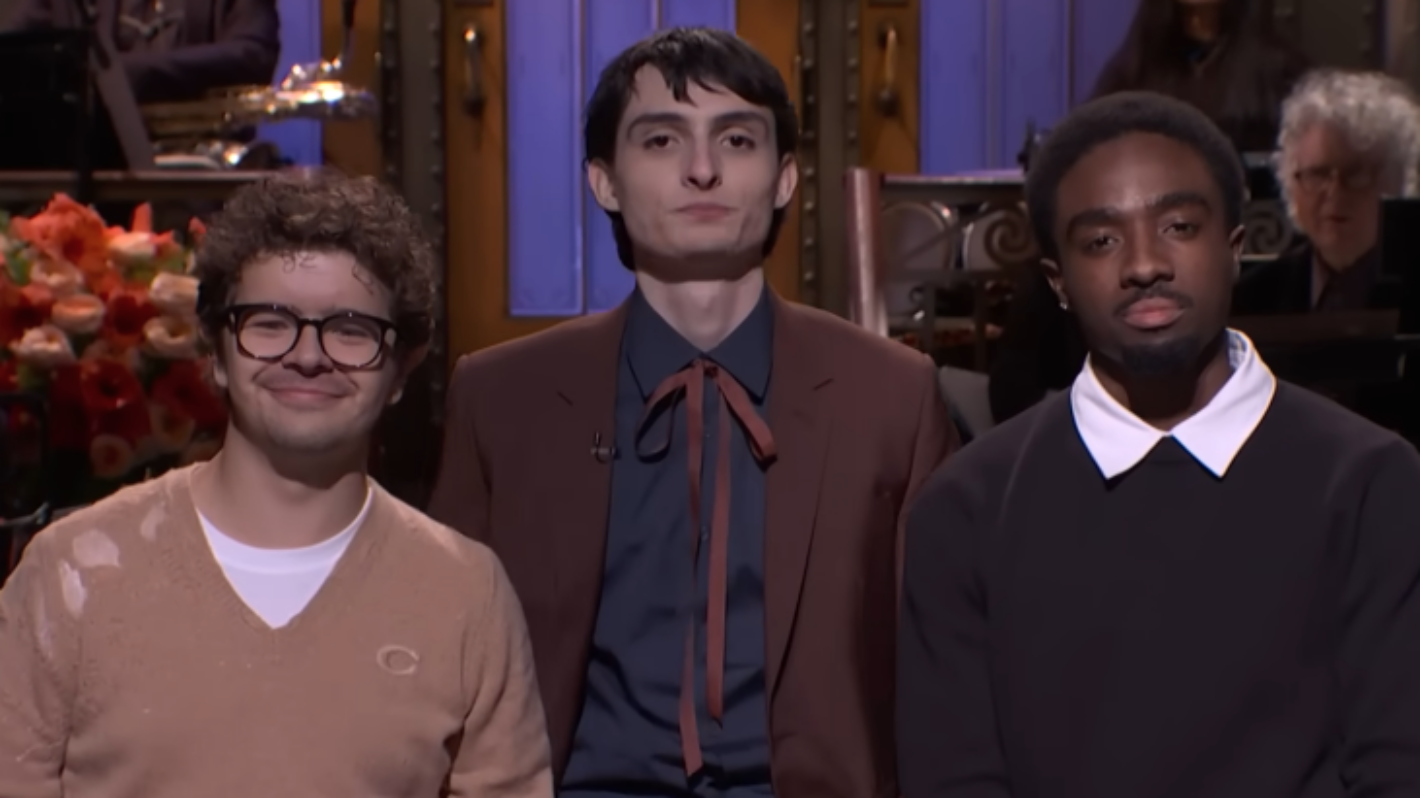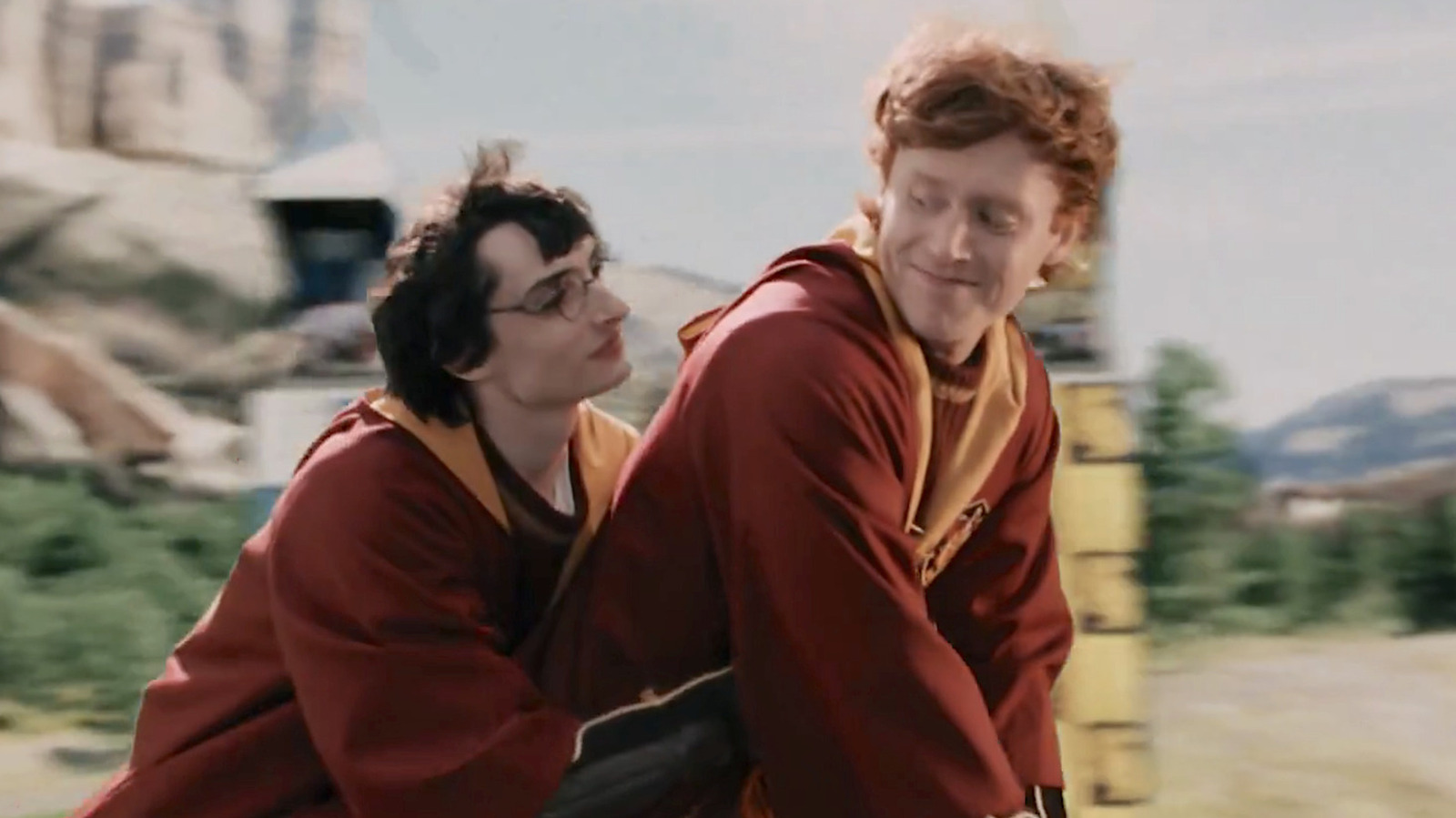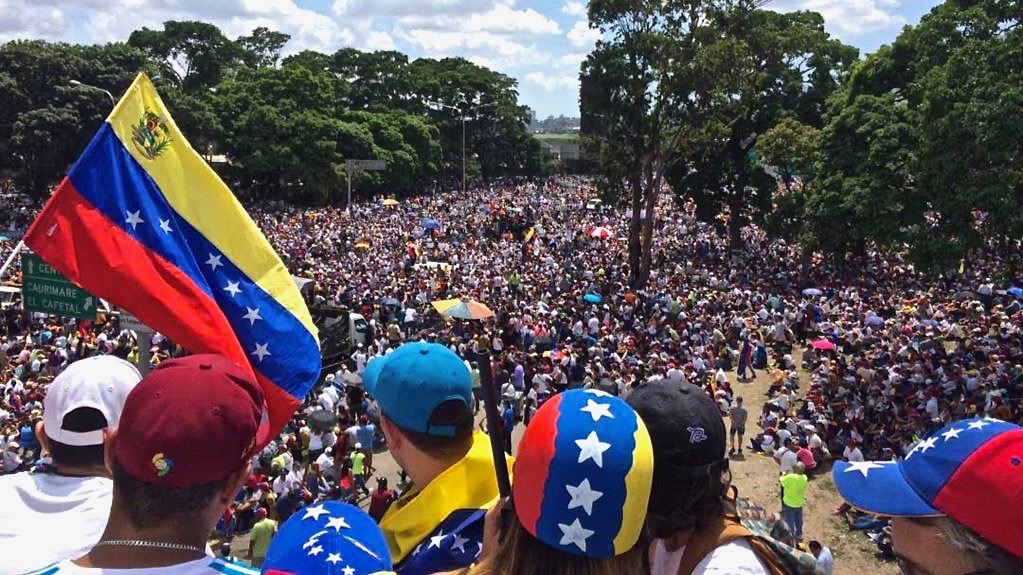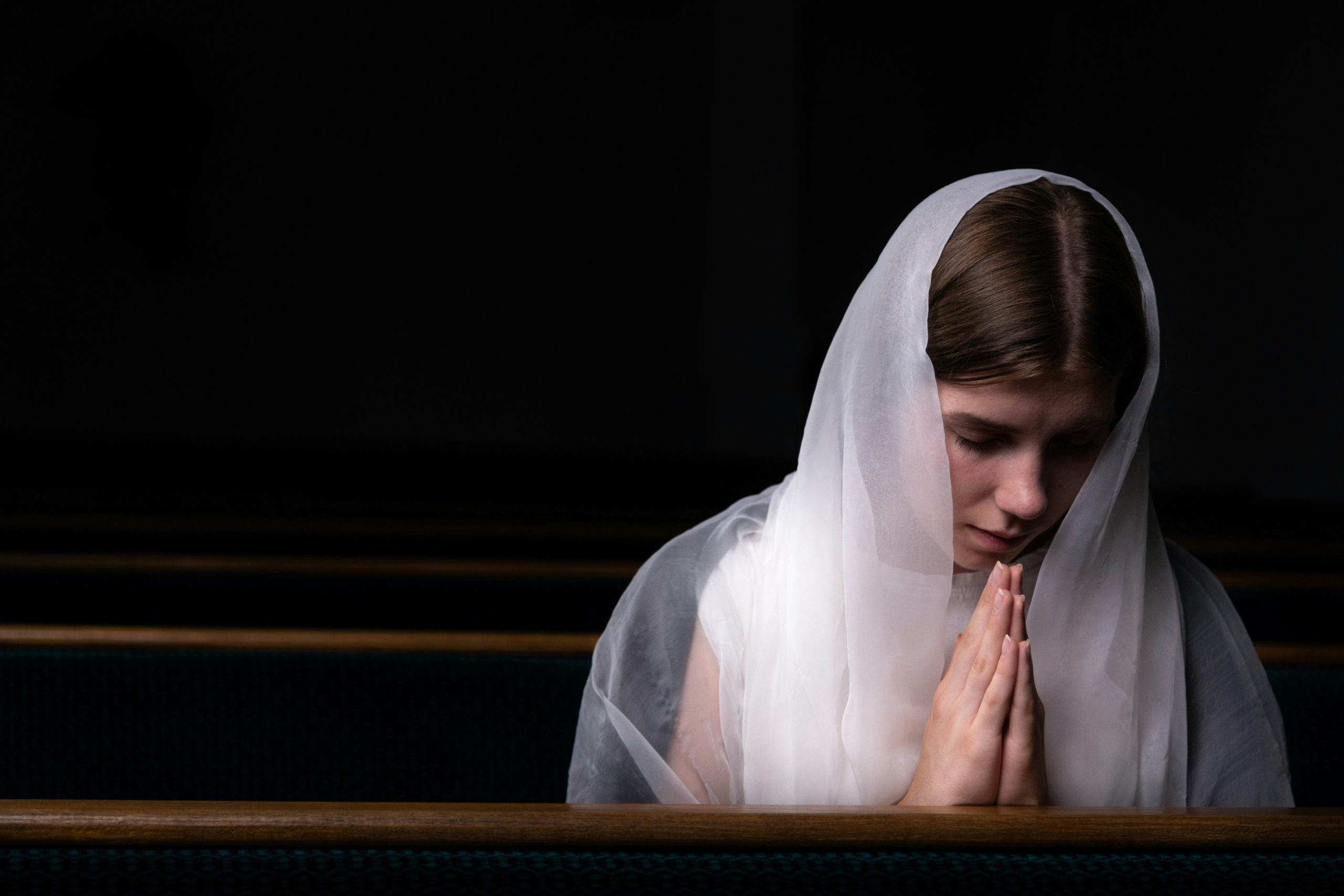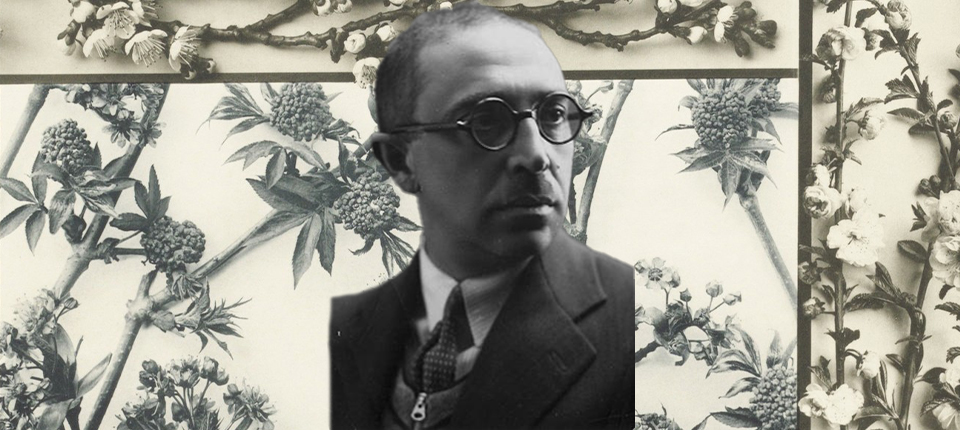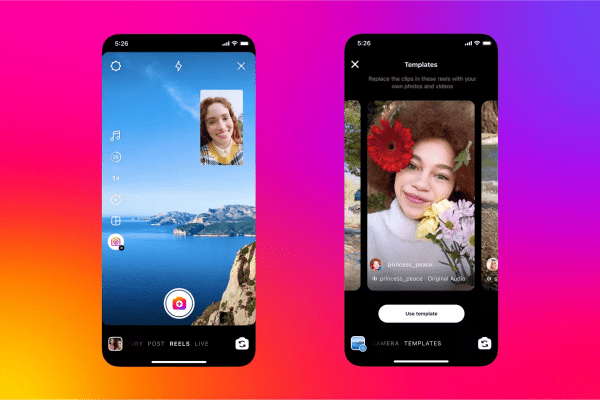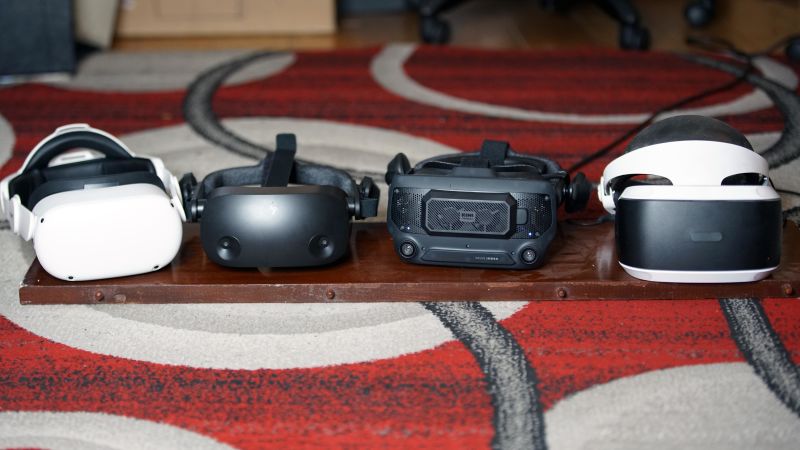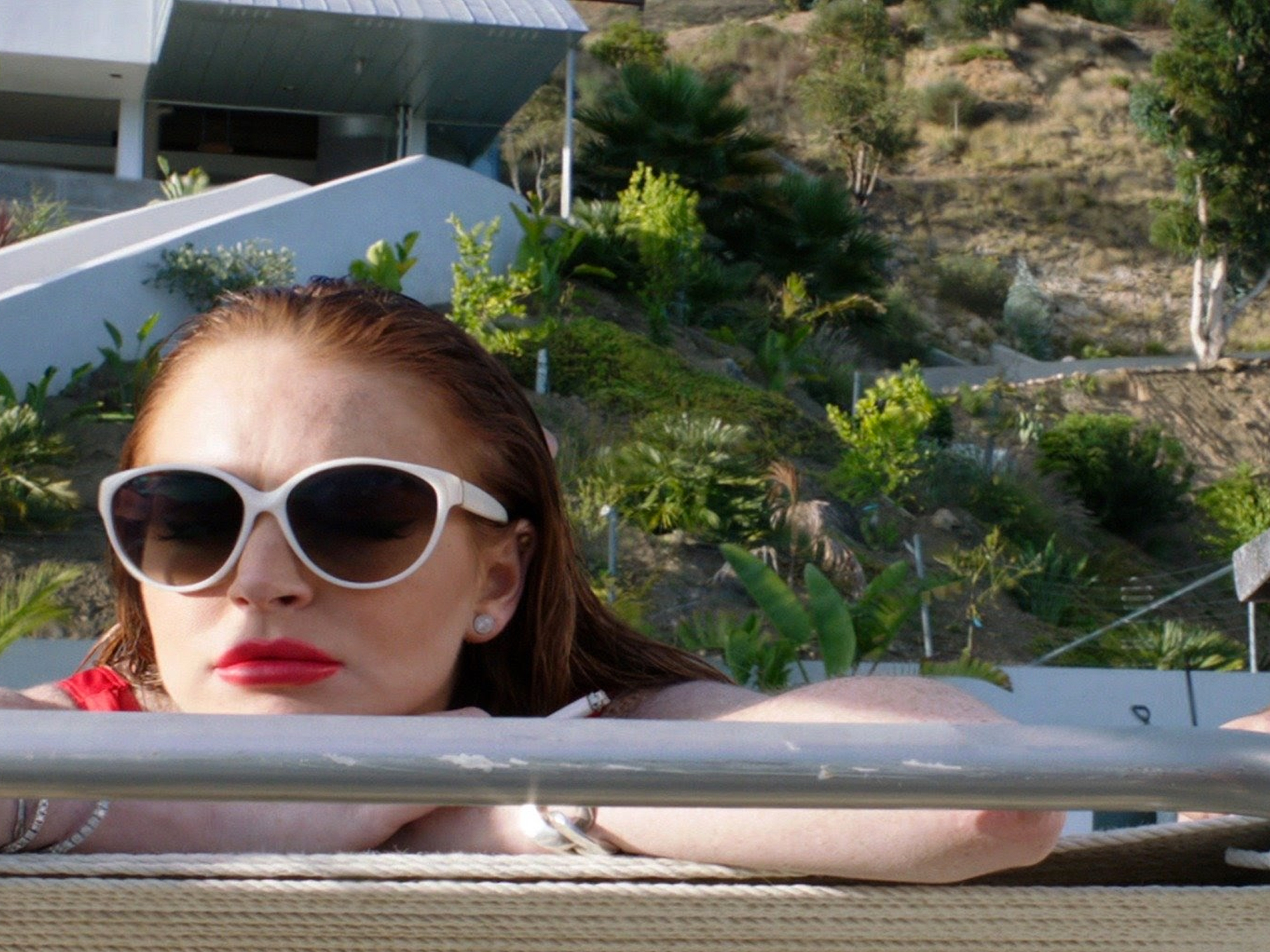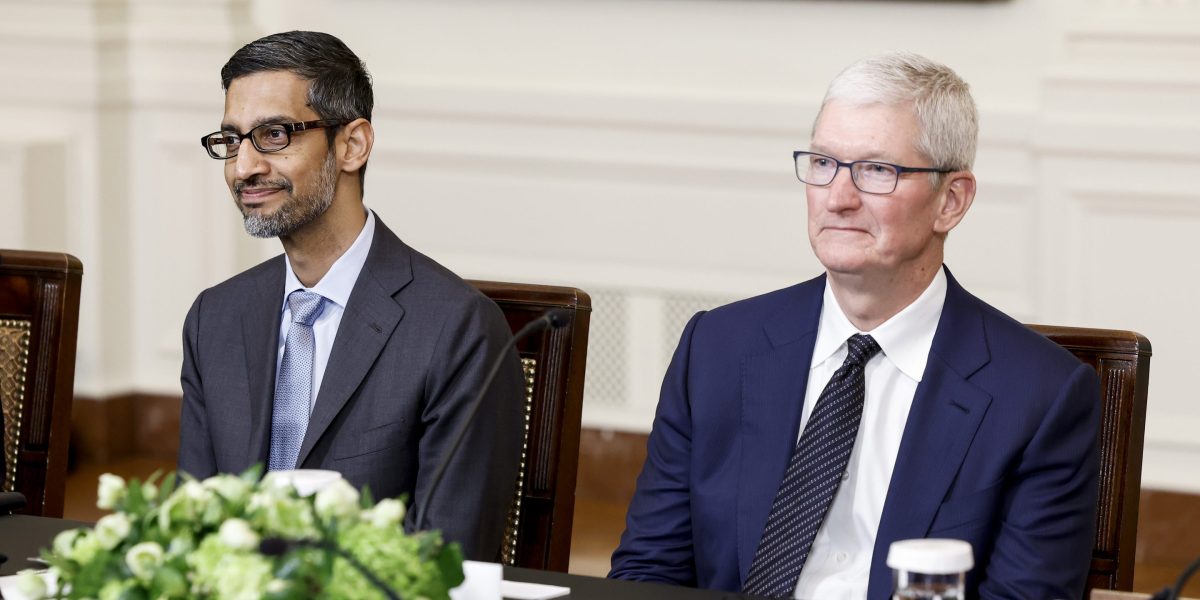We know the drill: Snapchat adds the Stories feature, Instagram nabs it. TikTok gets too popular, Instagram pivots to short-form video. Now, here’s another one for the list. This week, Instagram quietly added a feature to its TikTok-clone Reels called Dual, which lets you record with both your front and back camera at the same time. Visually, it looks extremely similar to BeReal, the buzzy, two-year-old social app that’s currently No. 1 in the App Store.
Founded in France by former GoPro employee Alexis Barreyat and Kévin Perreau, BeReal markets itself as an anti-Instagram. At a different time every day, you receive a notification telling you that it’s “time to BeReal” (a phrase that has become a meme in itself). From the time the notification goes out, you have exactly two minutes to take a photo of whatever you’re doing at that moment, and you have no choice but to use both the front and back cameras. The idea is that this randomness will generate authenticity, but in practice, it just means that we see a lot of photos of our friends on their laptops or watching Netflix.

Image Credits: Frontback
Instagram Dual is a clear rip-off of BeReal, but BeReal has also been criticized for copying Frontback, a short-lived app that boasted users like Jack Dorsey, Ashton Kutcher and the prime minister of Belgium. As its name suggests, Frontback let you take photos with your front and back phone camera at the same time. Twitter expressed interest in buying the app, but the company raised venture capital funding instead…and eventually folded. Like so many social media startups, Frontback just couldn’t retain user interest beyond its flash-in-the-pan popularity.
BeReal is like Wordle
Instagram is clearly riffing off of BeReal, not Frontback, but it seems like Instagram is missing the point of why people even like BeReal. Though the two-camera feature is fun, BeReal is perhaps more like Wordle than it is like Instagram or Frontback (which other writers have also pointed out). BeReal is not so much about the photos as it is about the daily ritual of sharing something with your friends. Sure, it’s not that important that a friend had pad thai for dinner last night, but it’s fun to share a moment of the day with them nonetheless. That friend also probably doesn’t care whether I got the Wordle in four or five tries today. But we all got in the habit of sharing our Wordle scores with each other because it’s a simple, unobtrusive way to keep in touch, even if we just respond with a thumbs-up reaction.
“Wordle is just such a low-effort way to check in,” Wordle creator Josh Wardle told TechCrunch earlier this year. “Sometimes you just post your result, sometimes you can respond to others’, but it’s this really comforting way of letting other people know that you’re thinking about them. It’s a shared experience.”
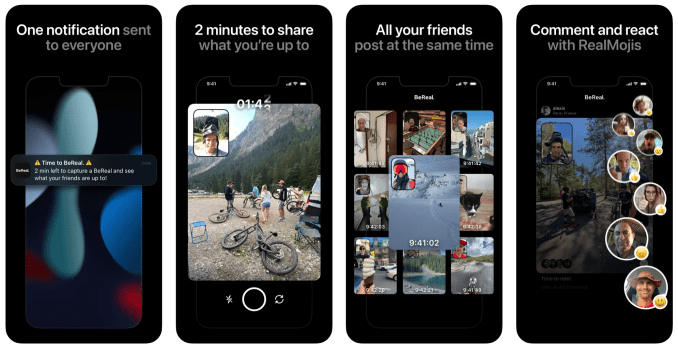
Image Credits: BeReal (opens in a new window)
BeReal has been widely critiqued for not actually being authentic. If you miss the daily two-minute window, there’s really no penalty for that, so it’s not that hard to just wait until you’re at a nice lunch, rather than your messy desk, to share your slice of life. And when you do use the app authentically, odds are, you’re probably not doing anything that interesting. But BeReal isn’t really about the specter of authenticity.
The Wordle craze proved that we have an appetite for online social experiences that are inherently unaddictive. There’s one Wordle per day, and after you complete it, you’re done. And on BeReal, you and your friends are all limited to one post a day. Even if you check the feed two or three times to see if anyone posted a new BeReal, that’s still probably less than you’re opening Instagram or Twitter or TikTok. It’s refreshing. You really can’t feel FOMO on BeReal…unless your friends post that they’re hanging out without you, an anxiety as old as MySpace.
BeReal’s rookie status vs. Instagram’s identity crisis
BeReal might be topping the App Store charts now, but the app still has an uphill battle toward becoming a mainstay of social media. For one thing, it’s pretty glitchy right now — even if you see the daily push notification as soon as it goes out, you might not even be able to post in the two-minute window, since it can take the app a long time to load when so many users are on it. Another concern is that, like on Snapchat, if you share your location on BeReal, you’re essentially broadcasting where you live, since friends can see your location on a map. Plus, it’s possible we might get bored of it, just like we did with Frontback — but then again, I’m still doing Wordle every day.
Every few years, it feels like a new challenger emerges to challenge Instagram’s dominance, but it’s hard to compete with an app that reportedly has over 2 billion monthly active users. According to stats from Apptopia, BeReal has been downloaded 7.67 million times year to date, representing 74.5% of its lifetime installs. With that, BeReal is pulling ahead of Dispo, another venture capital darling that also positions itself as an alternative to Instagram (CEO Daniel Liss even threw some shade at Instagram head Adam Mosseri today).
Dispo, originally co-founded by now-infamous YouTuber David Dobrik, aims to capture the sensation of using a disposable camera. You can take as many photos as you want, but you can’t see your photos until the following morning. That way, you can’t do that thing where you take 20 selfies before choosing the “best” one to post. BeReal has some similar functionality — if you retake your photo, your friends can tell — but the basic concept of the apps are pretty different, despite their shared goal of authenticity.
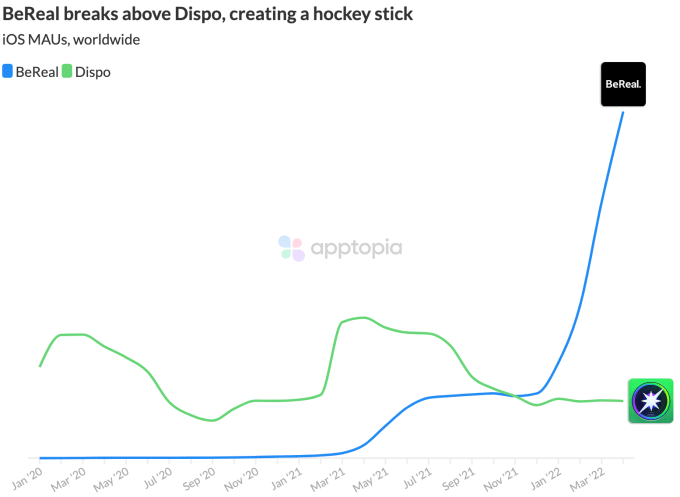
Image Credits: Apptopia
It’s been a bad week to be a Meta executive. Instagram head Adam Mosseri got skewered for trying to defend recent tests on Instagram that make it feel like a knock-off TikTok. Then, as Meta reported disappointing quarterly financials last night, CEO Mark Zuckerberg said that recommended content will make up even more of our Instagram and Facebook feeds next year. The public sentiment seems to be that people miss an era of Instagram when we could actually see our friends’ posts instead of algorithmically recommended Reels from strangers. But that era of Instagram and users’ picture-perfect posts is how we ended up with apps like Dispo and BeReal that keep trying to manufacture a sense of authenticity.
It’s hard to say who will win here: the glitchy, somewhat boring BeReal, or the tried-and-true Instagram, an app we all kind of hate and yet can’t help but use?
As fun as TikTok can be, people can only take so many endless, algorithmically generated content feeds. It’s always been tough bordering on impossible for a startup to take on Instagram, but if there’s ever been a good time to capitalize on growing angst toward the app, it’s now.

